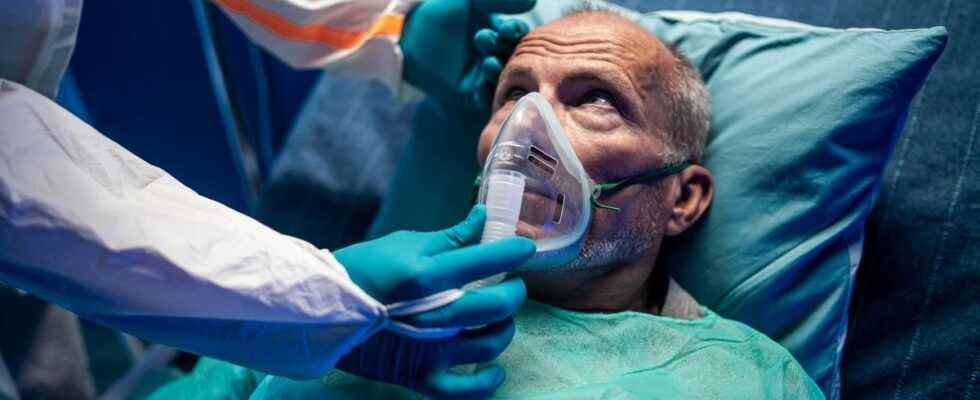Published on
Updated
Reading 2 mins.
Oxygen therapy, prone position, intubation… Resuscitation care to treat certain patients affected by a severe form of Covid-19 is heavy and difficult to bear both at the time, but also afterwards. In any case, this is demonstrated by a study carried out by doctors from the Toulouse University Hospital.
A cohort of patients who went through intensive care at the Toulouse University Hospital were subjected to a questionnaire to find out their state of health, several months after their return home. These patients were victims of a serious form of Covid-19, having required their hospitalization and then their passage to intensive care between March and October 2020, at the time of the first two waves of the disease.
The post-resuscitation syndrome
Psychological disorders, muscular problems, pain, mobility or nutrition problems… The 52 patients chosen were questioned about different aspects of their health since their return home. According to the results of this work,more than 70% of patients declared a long Covid” with impaired quality of life. and “sSeven out of ten also showed signs of depression and nearly 40% also have pain that did not exist before, often due to positioning in intensive care..
For the detection of this syndrome, the intensive care unit of the CHU of Toulouse has just joined thestudy called Algo-Réa, coordinated by Nantes University Hospital. The aim of this larger study is to include all patients released from intensive care in order to better understand their problems, thanks to long-term follow-up.
Consult a GP online
Post-resuscitation disorders not specific to Covid-19
For Dr. Gérald Kierzek, this post-resuscitation syndrome is an element that can indeed be traumatic. “The disorders described are consecutive to the stay in intensive care. The patients sometimes keep the sequelae of their artificial coma, they describe the “beeps” of the machines that they heard, there is also a disturbance of the day-night rhythm. We try to limit this as much as possible, by using night lights for example, but it remains complicated for patients.” he explains.
“We are also working on pain management, we allow visits to families… We must also remember that this post-resuscitation syndrome concerns all patients and not only those affected by Covid, it is a difficult but necessary passage. to save their lives” concludes the doctor.
